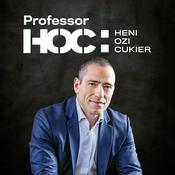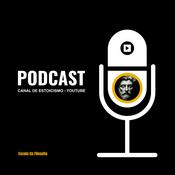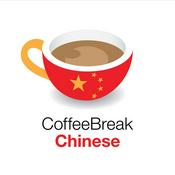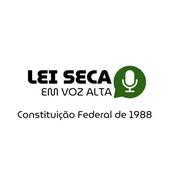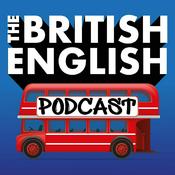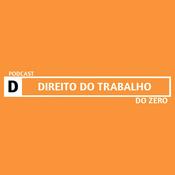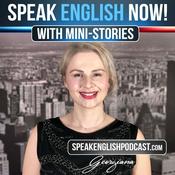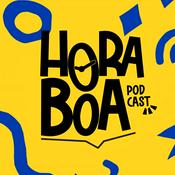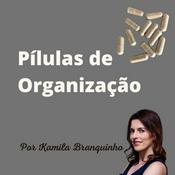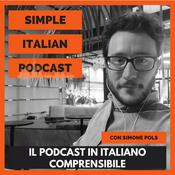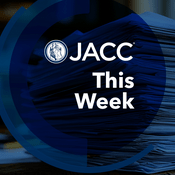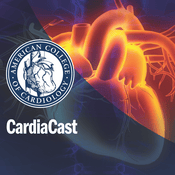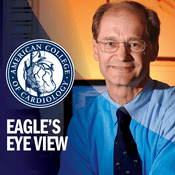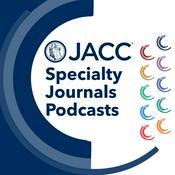ACCEL Lite: Featured ACCEL Interviews on Exciting CV Research
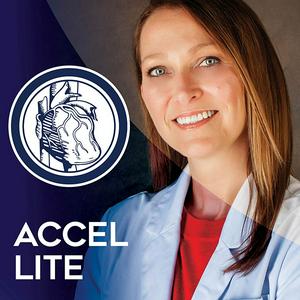
316 episódios

ACCEL Lite: Should There Be a Reappraisal of Surgical Threshold in Patients with AA Dilation?
06/1/2026 | 11min
Ascending aortopathy (AA) is typically asymptomatic and often diagnosed incidentally, with surgical aortic replacement recommended once aneurysmal thresholds are reached. Emerging evidence suggests that indexing aortic size to patient height may more accurately identify individuals who could benefit from earlier intervention. For AA patients who do not currently meet guideline-based criteria for surgery, the aim is to assess how height-indexed aortic measurements influence longer‑term clinical outcomes in this population. In this interview, Glenn A. Hirsch MD, MHS, FACC and Milind Y. Desai, MD, MBA, FACC discuss "Should There Be a Reappraisal of Surgical Threshold in Patients with Ascending Aortic Dilation?".

Top Takeaways from 2025: Preventive Cardiology with C. Noel Bairey Merz, MD, MACC
18/12/2025 | 14min
In this interview, C. Noel Bairey Merz MD, MACC and Alison L. Bailey, MD FACC, discuss the Top Preventive Cardiology Takeaways from 2025 including trials clopidogrel versus aspirin, the benefit of vaccines, statin use in pregnancy, and more. Suggested Materials: Valgimigli M, Choi KH, Giacoppo D, et al. Clopidogrel versus aspirin for secondary prevention of coronary artery disease: a systematic review and individual patient data meta-analysis. Lancet. 2025;406(10508):1091-1102. doi:10.1016/S0140-6736(25)01562-4 O'Leary K. Influenza vaccination benefits patients with heart failure. Nature Medicine. 2025. doi: https://doi.org/10.1038/d41591-025-00058-0 Christensen JJ, Holven KB, Bogsrud MP, et al. Statin use in pregnancy and risk of congenital malformations: a Norwegian nationwide study. Eur Heart J. Published online August 21, 2025. doi:10.1093/eurheartj/ehaf592 Mozaffarian D, Agarwal M, Aggarwal M, et al. Nutritional priorities to support GLP-1 therapy for obesity: A joint Advisory from the American College of Lifestyle Medicine, the American Society for Nutrition, the Obesity Medicine Association, and The Obesity Society. Obesity (Silver Spring). 2025;33(8):1475-1503. doi:10.1002/oby.24336 Brett AS. New Variations on GLP-1–Receptor Agonists are Coming (NEJM/Clinician website). 2025. Available at: https://clinician.nejm.org/new-variations-glp-1receptor-agonists-coming-nejm-jw.NA58926. Accessed 12/17/25. Subscribe on Apple Podcasts | Subscribe to ACCEL

Top Takeaways from 2025: EP with DJ Lakkireddy, MBBS, FACC
17/12/2025 | 18min
In this interview, DJ Lakkireddy, MBBS, FACC and Alison L. Bailey, MD FACC, discuss the Top Electrophysiology Takeaways from 2025 including trials CLOSURE-AF, ALONE-AF, NEMESIS-PFA, and more. Suggested Materials: 1. Verma A, Birnie DH, Jiang C, et al. Antithrombotic Therapy after Successful Catheter Ablation for Atrial Fibrillation. N Engl J Med. Published online November 8, 2025. doi:10.1056/NEJMoa2509688 2. Landmesser U, Skurk C, Kirchhof P, et al. Catheter-based left atrial appendage CLOSURE in patients with atrial fibrillation at high risk of stroke and bleeding as compared to best medical therapy: Rationale and design of the prospective randomized CLOSURE-AF trial. Am Heart J. Published online September 12, 2025. doi:10.1016/j.ahj.2025.09.005 3. Kim D, Shim J, Choi EK, et al. Long-Term Anticoagulation Discontinuation After Catheter Ablation for Atrial Fibrillation: The ALONE-AF Randomized Clinical Trial. JAMA. 2025;334(14):1246-1254. doi:10.1001/jama.2025.14679 4. Lakkireddy D, Katapadi A, Garg J, et al. NEMESIS-PFA: Investigating Collateral Tissue Injury Associated With Pulsed Field Ablation. JACC Clin Electrophysiol. 2025;11(8):1747-1756. doi:10.1016/j.jacep.2025.04.017 5. Wazni OM, Saliba WI, Nair DG, et al. Left Atrial Appendage Closure after Ablation for Atrial Fibrillation. N Engl J Med. 2025;392(13):1277-1287. doi:10.1056/NEJMoa2408308 Subscribe on Apple Podcasts | Subscribe to ACCEL

Multimodality Imaging in Inflammatory Cardiomyopathy
16/12/2025 | 9min
Multimodality imaging plays a pivotal role in evaluating inflammatory cardiomyopathy, particularly when cardiac sarcoidosis (CS) is suspected. Symptoms of CS include unexplained high-grade AV block, ventricular arrhythmias, reduced left ventricular function, or regional wall thinning without coronary disease. The best evaluation combines cardiac magnetic resonance imaging (MRI) for structural and scar assessment with fluorodeoxyglucose (FDG)-positron emission tomography (PET) for detecting active inflammation and extracardiac involvement. In this interview, Michelle Kittleson MD, FACC and Ron Blankstein, MD, FACC discuss "Multimodality Imaging in Inflammatory Cardiomyopathy." Subscribe on Apple Podcasts | Subscribe to ACCEL

Top Takeaways from 2025: Clinical Cardiology with Allen J. Taylor, MD, FACC
11/12/2025 | 18min
In this interview, Allen J. Taylor, MD, FACC and Alison L. Bailey, MD FACC, discuss the Top Clinical Cardiology Takeaways from 2025 including trials SCOT-HEART 2, ALONE-AF, Launch-HTN, and more. Suggested Materials: 1. Kim D, Shim J, Choi EK, et al. Long-Term Anticoagulation Discontinuation After Catheter Ablation for Atrial Fibrillation: The ALONE-AF Randomized Clinical Trial. JAMA. 2025;334(14):1246-1254. doi:10.1001/jama.2025.14679 2. Lemesle G, Didier R, Steg PG, et al. Aspirin in Patients with Chronic Coronary Syndrome Receiving Oral Anticoagulation. N Engl J Med. 2025;393(16):1578-1588. doi:10.1056/NEJMoa2507532 3. Packer M, Zile MR, Kramer CM, et al. Tirzepatide for Heart Failure with Preserved Ejection Fraction and Obesity. N Engl J Med. 2025;392(5):427-437. doi:10.1056/NEJMoa2410027 4. Flack JM, Azizi M, Brown JM, et al. Efficacy and Safety of Baxdrostat in Uncontrolled and Resistant Hypertension. N Engl J Med. 2025;393(14):1363-1374. doi:10.1056/NEJMoa2507109 5. Saxena M, Laffin L, Borghi C, et al. Lorundrostat in Participants With Uncontrolled Hypertension and Treatment-Resistant Hypertension: The Launch-HTN Randomized Clinical Trial. JAMA. 2025;334(5):409-418. doi:10.1001/jama.2025.9413 6. McDermott M, Khaing PH, Meah MN, et al. CT Angiography, Healthy Lifestyle Behaviors, and Preventive Therapy: A Nested Substudy of the SCOT-HEART 2 Randomized Clinical Trial. JAMA Cardiol. 2025;10(8):841-850. doi:10.1001/jamacardio.2025.1763 Subscribe on Apple Podcasts | Subscribe to ACCEL
Mais podcasts de Ensino
Podcasts em tendência em Ensino
Sobre ACCEL Lite: Featured ACCEL Interviews on Exciting CV Research
Ouça ACCEL Lite: Featured ACCEL Interviews on Exciting CV Research, Flow Podcast e muitos outros podcasts de todo o mundo com o aplicativo o radio.net

Obtenha o aplicativo gratuito radio.net
- Guardar rádios e podcasts favoritos
- Transmissão via Wi-Fi ou Bluetooth
- Carplay & Android Audo compatìvel
- E ainda mais funções
Obtenha o aplicativo gratuito radio.net
- Guardar rádios e podcasts favoritos
- Transmissão via Wi-Fi ou Bluetooth
- Carplay & Android Audo compatìvel
- E ainda mais funções


ACCEL Lite: Featured ACCEL Interviews on Exciting CV Research
baixe o aplicativo,
ouça.




